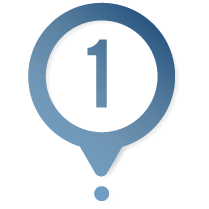Literary Theory
Literary Theory
Resource Key
When accessing content use the numbers below to guide you
 LEVEL 1
LEVEL 1
Brief, basic information laid out in an easy-to-read format. May use informal language. (Includes most news articles)
 LEVEL 2
LEVEL 2
Provides additional background information and further reading. Introduces some subject-specific language
 LEVEL 3
LEVEL 3
Lengthy, detailed information. Frequently uses technical/subject-specific language. (Includes most analytical articles)
General Books
-
Critical Theory: the Key Concepts by Critical Theory: The Key Concepts introduces over 300 widely-used terms, categories and ideas drawing upon well-established approaches like new historicism, postmodernism, psychoanalysis, Marxism, and narratology as well as many new critical theories of the last twenty years such as Actor-Network Theory, Global Studies, Critical Race Theory, and Speculative Realism. This book explains the key concepts at the heart of a wide range of influential theorists from Agamben to Zizek. Entries range from concise definitions to longer more explanatory essays and include terms such as: Aesthetics Desire Dissensus Dromocracy Hegemony Ideology Intersectionality Late Capitalism Performativity Race Suture Featuring cross-referencing throughout, a substantial bibliography and index, Critical Theory: The Key Concepts is an accessible and easy-to-use guide. This book is an invaluable introduction covering a wide range of subjects for anyone who is studying or has an interest in critical theory (past and present).
ISBN: 9780415695657Publication Date: 2015-04-27 -
Beginning Theory by Beginning theory has been helping students navigate through the thickets of literary and cultural theory for well over a decade now. This new and expanded third edition continues to offer students and readers the best one-volume introduction to the field.The bewildering variety of approaches, theorists and technical language is lucidly and expertly unravelled. Unlike many books which assume certain positions about the critics and the theories they represent, Peter Barry allows readers to develop their own ideas once first principles and concepts have been grasped.The book has been updated and includes two new chapters, one of which (Literary theory - a history in ten events) innovatively surveys the course of theory, while the other (Theory after 'Theory') maps the arrival of new 'isms' since the second edition appeared in 2002.Liberal humanism - Structuralism - Post-structuralism and deconstruction - Postmodernism - Psychoanalytic criticism - Feminist criticism - Lesbian/gay criticism - Marxist criticism - New historicism and cultural materialism - Postcolonial criticism - Stylistics - Narratology - Ecocriticism - Presentism/Transversal poetics/New aestheticism/Historical formalism/Cognitive poetics.
ISBN: 9780719079276Publication Date: 2009-02-01
Overview
“Literary theory” is the body of ideas and methods we use in the practical reading of literature. By literary theory we refer not to the meaning of a work of literature but to the theories that reveal what literature can mean. Literary theory is a description of the underlying principles, one might say the tools, by which we attempt to understand literature. All literary interpretation draws on a basis in theory but can serve as a justification for very different kinds of critical activity. It is literary theory that formulates the relationship between author and work; literary theory develops the significance of race, class, and gender for literary study, both from the standpoint of the biography of the author and an analysis of their thematic presence within texts.
- from Internet Encyclopedia of Philosophy, https://iep.utm.edu/literary/
How to use this guide
Each tab will provide a summary of the theory, explain what the theory does and gives some example questions that might be asked.
There are also additional links to websites and books provided that give more information.
General Resources
-
OWL Purdue Online Writing LabThe Online Writing Lab (OWL) at Purdue University houses writing resources and instructional material, and we provide these as a free service of the Writing Lab at Purdue. Students, members of the community, and users worldwide will find information to assist with many writing projects. Teachers and trainers may use this material for in-class and out-of-class instruction.
-
The Internet Encyclopedia of PhilosophyThe Internet Encyclopedia of Philosophy (IEP) (ISSN 2161-0002) was founded in 1995 to provide open access to detailed, scholarly, peer-reviewed information on key topics and philosophers in all areas of philosophy. The Encyclopedia receives no funding, and it operates through the volunteer work of the editors, authors, volunteers, and technical advisers. At present, the IEP has over a million visitors per month and about 20 million page views per year. The Encyclopedia is free of charge and available to all users of the Internet worldwide. The staff of 30 editors and approximately 300 authors hold doctorate degrees and are professors at universities around the world.
-
Introduction to Theory of Literature (ENGL 300)In this first lecture, Professor Paul Fry explores the course's title in three parts. The relationship between theory and philosophy, the question of what literature is and does, and what constitutes an introduction are interrogated. The professor then situates the emergence of literary theory in the history of modern criticism and, through an analysis of major thinkers such as Marx, Nietzsche, and Freud, provides antecedents for twentieth-century theoretical developments.
-
Introductory Guide to Critical Theory (Last Update: Jan. 31, 2011)Once you learn the ideas behind these theories, you will discover that you probably already think about approaching texts from at least one of these analytical approaches at various moments in the reading process. The hardest part of understanding and working with critical theory is grasping and using the new vocabulary, but, as with all languages, the new vocabulary will empower you and enhance your exposition of already existing thoughts and ideas.


